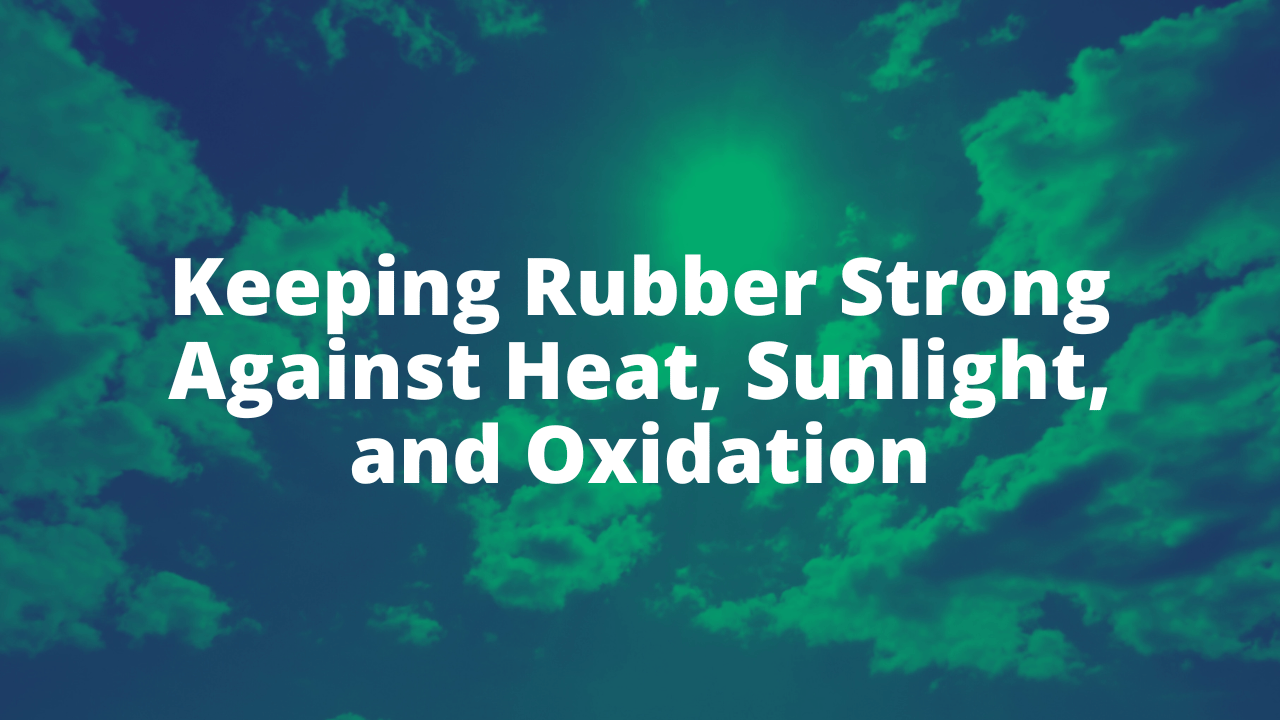At Custom Rubber Corp., we specialize in delivering tailored rubber solutions that meet the unique demands of our customers across various industries. One key to achieving optimal performance in rubber components is through the use of additives, which allow us to customize the properties of rubber to suit specific applications. Whether it's enhancing durability for automotive parts, improving flexibility for medical devices or adding heat resistance for consumer products, additives can fine-tune the performance of rubber.

What Are Rubber Additives?
Rubber additives are essential materials incorporated into the rubber manufacturing process to enhance and modify the properties of the base rubber. These additives serve various functions, including improving strength, flexibility, durability and resistance to environmental factors such as heat, UV light and chemicals.
By integrating specific additives into the rubber compound, we can tailor the material to meet the exact requirements of a particular application, ensuring that the final product performs optimally in its intended environment. This customization is crucial in achieving the desired balance between performance and cost-effectiveness.
Why Customization Matters
Different industries have specific demands that require specialized rubber properties. For instance, the automotive sector often prioritizes durability and heat resistance for components like tires and seals, while the medical industry may require high levels of flexibility and biocompatibility for devices such as tubing and gaskets.
Additives make it possible to achieve these unique performance characteristics, enabling the development of solutions that meet industry standards and are tailored to the demands of each application. This level of customization ensures that products can withstand the rigors of their environments and perform effectively under specific conditions.
Types of Rubber Additives and Their Functions

1. Fillers
Fillers are commonly used materials in rubber formulations, with carbon black and silica being the most prevalent examples. These additives serve to enhance the rubber’s properties, significantly improving its strength, durability and abrasion resistance. By reinforcing the rubber matrix, fillers can help extend the lifespan of products exposed to harsh conditions. For instance, in automotive tires, fillers enhance durability, enabling them to withstand wear and tear, while in industrial seals, they provide the necessary strength to ensure leak-proof performance.
2. Plasticizers
Plasticizers increase flexibility and reduce stiffness in rubber compounds. These additives allow the material to become more pliable, which is particularly important in applications where flexibility is critical. For example, gaskets and hoses benefit from the addition of plasticizers, enabling them to conform to various shapes and withstand repeated bending and stretching without losing integrity. This flexibility ensures effective sealing and performance in dynamic environments.
3. Antioxidants and UV Stabilizers
Antioxidants and UV stabilizers are additives that protect rubber from aging caused by environmental factors such as heat, oxygen and sunlight. By mitigating oxidative degradation, these additives extend the lifespan of rubber products, ensuring they maintain their performance characteristics over time. This protection is particularly important for outdoor applications like lawn and garden equipment and marine products, where exposure to harsh weather conditions can lead to rapid deterioration.

4. Curing Agents
Curing agents, such as sulfur, peroxides and accelerators, are crucial in the vulcanization process, which transforms raw rubber into a durable and elastic material. These additives control the cross-linking of rubber molecules, resulting in improved elasticity, heat resistance and overall performance. Products designed for high-performance applications, such as those in the automotive and aerospace industries, often rely on curing agents to withstand extreme conditions. The right curing agent ensures that the final product can handle temperature fluctuations and mechanical stresses without failure.
5. Flame Retardants
Flame retardants are specialized additives designed to enhance the safety of rubber products by reducing their flammability. Incorporating these additives produces rubber components that resist ignition and slow the spread of flames, providing an essential safety feature in various applications. Commonly used in industries such as electronics and transportation, flame retardants help ensure compliance with safety regulations and protect both people and property from fire hazards.
The Importance of Selecting the Right Additives
Selecting the right additives can help with balancing performance and cost efficiency in rubber products. The proper additive can enhance specific properties—such as strength, flexibility or heat resistance—without unnecessarily increasing material or production costs.
For example, using the right filler or plasticizer can optimize durability and flexibility, reducing the need for frequent replacements and lowering long-term costs. At Custom Rubber Corp., we work closely with our clients to ensure the ideal combination of additives is chosen, delivering solutions that not only perform well but also align with budget constraints.
Environmental and Regulatory Considerations
In addition to performance and cost, environmental and regulatory considerations are increasingly important in the selection of rubber additives. Many industries are subject to strict regulations on material safety, emissions and sustainability. Custom Rubber Corp. stays ahead of these challenges by offering environmentally friendly, compliant additives that meet both performance demands and regulatory standards. Our commitment to using safe, eco-conscious materials ensures that our customers can confidently navigate industry regulations while maintaining the quality and integrity of their products.
Achieving Optimal Rubber Performance with Additives
Additives can transform rubber into high-performing, customized solutions, allowing for the precise modification of properties like strength, flexibility and resistance to heat or chemicals. By choosing the right combination of additives, rubber can be tailored to meet the specific demands of any industry, ensuring optimal performance in even the most challenging applications.

If you're looking to enhance the performance of your rubber products, we encourage you to
contact Custom Rubber Corp. Our team of experts is ready to guide you through the process, helping you achieve long-lasting, high-quality results that are perfectly suited to your unique needs. Partner with us to experience the value of custom rubber solutions designed for your success.